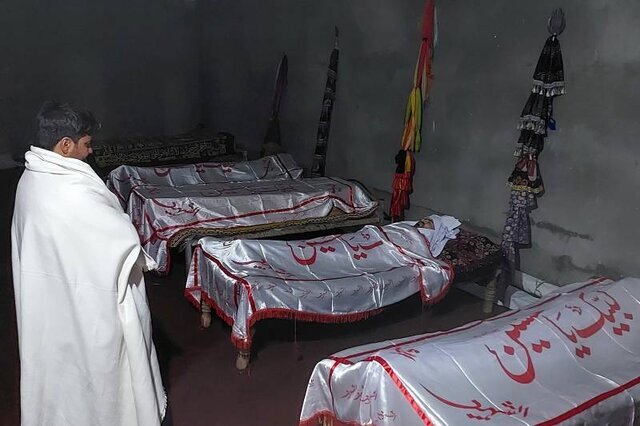Shiites, victims of targeted attacks in Pakistan

The city of Parachinar is located in the Khyber Pakhtunkhwa province of Pakistan's Kurram district. Takfiris have long targeted Shia Muslims, who make up around 15% of the population, with violence and discrimination. The 1988 Gilgit massacre, in which hundreds of Shias were martyred, remains a symbol of Pakistan’s failure to protect its Shia population.
Takfiri organizations openly promote violence and hatred toward Shias. As a result, anti-Shia violence has flourished in Pakistan, where assaults on Shias, like the recent Parachinar massacre, have increased in frequency.
Regarding the state of Shiites in the area, Global Order wrote: For Shiites, the threat has evolved into an existential crisis rather than being confined to isolated incidents. Shiites have experienced attacks during religious gatherings, targeted assassinations, and suicide bombings in mosques. Residents of Parachinar, a Shiite-majority neighborhood, are accustomed to the violence because they have been attacked numerous times over the years.
Because of its closeness to Afghanistan, Parachinar, which is in the Kurram region, is strategically significant. Because of its location, it has become a hotbed of Takfiri violence; Takfiri hacking groups take advantage of the area's remoteness to commit crimes there with little concern for government intervention.
The attack on Parachinar serves as a reminder that immediate action is required. Without taking significant action to safeguard its minorities, Pakistan keeps up a cycle of violence and instability.
From 2007 to 2012, armed men besieged Parachinar, preventing the Shia community from receiving necessities like food and medicine. Hundreds of people died as a result of the siege. There were thousands more displaced.
Attacks against Shia Muslims in Kurram are allegedly carried out by terrorist organizations like ISIS in an effort to expand their local presence.